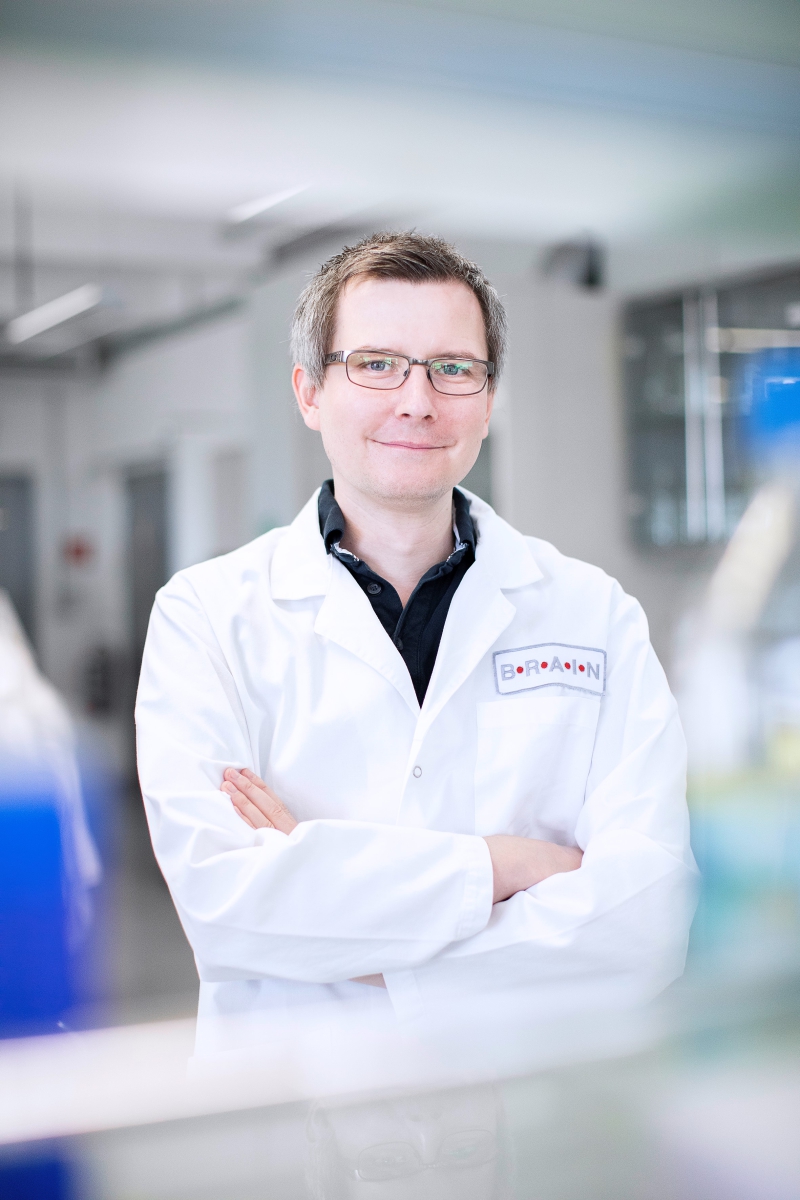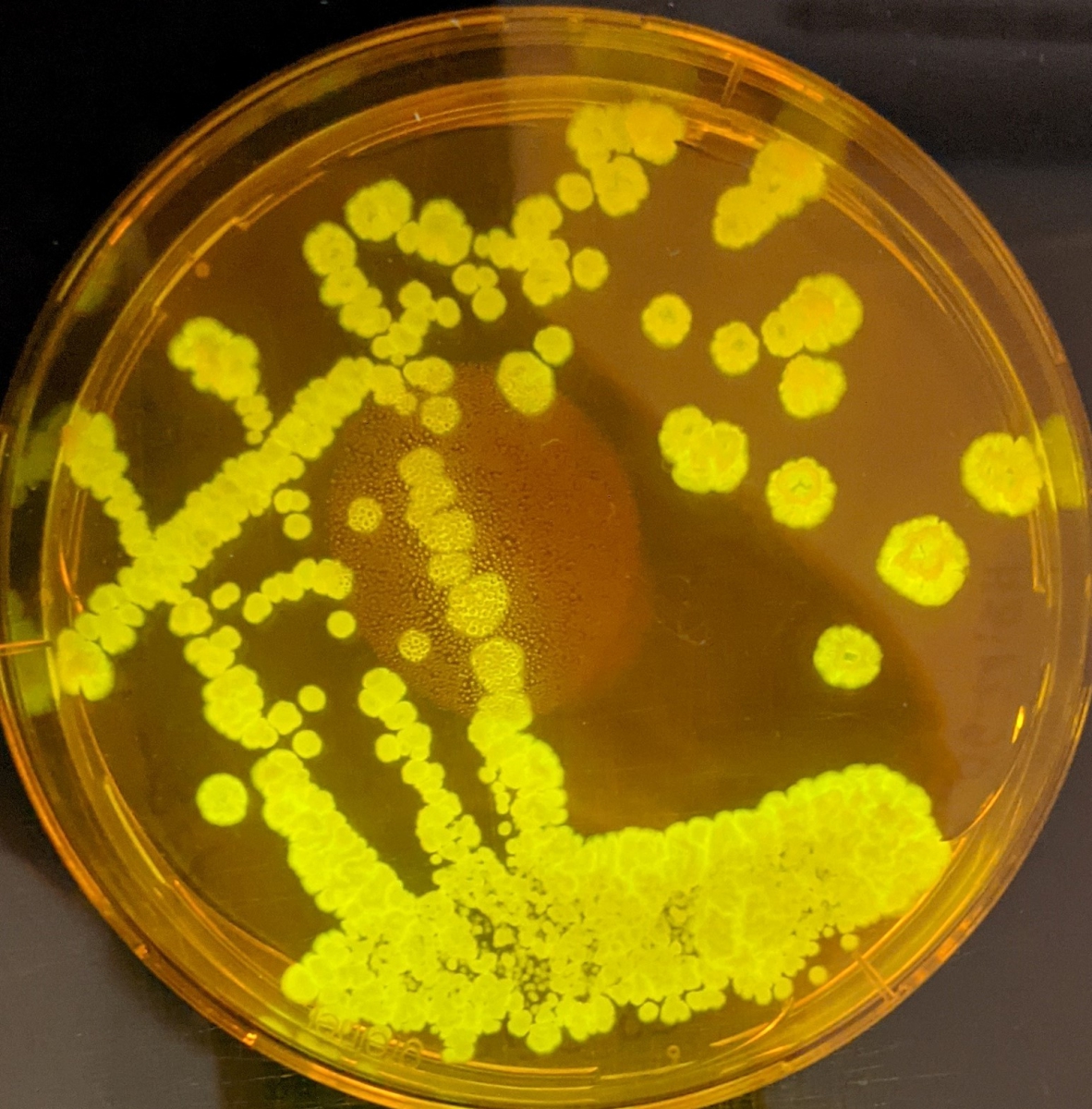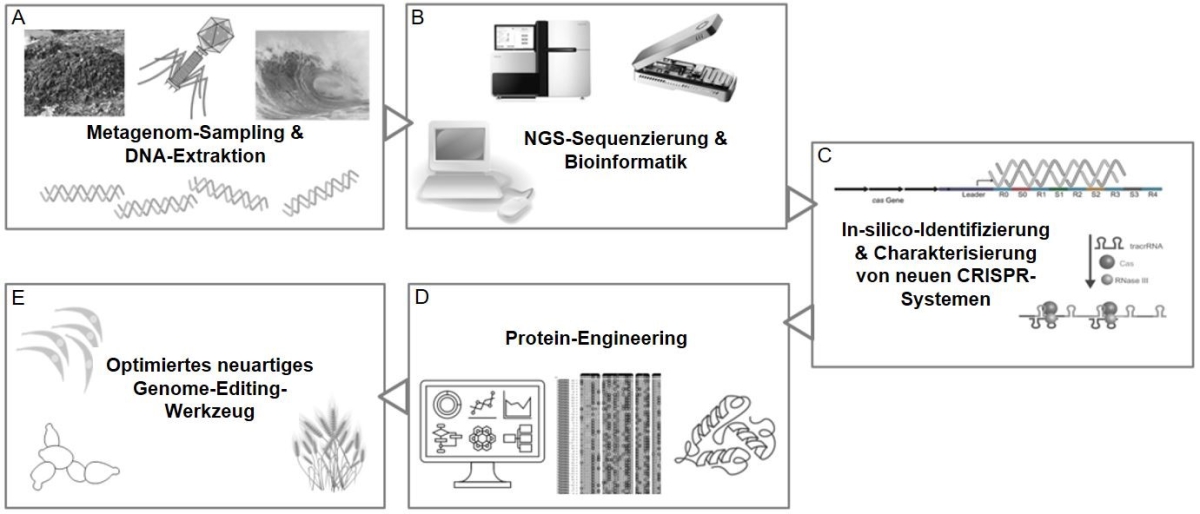VAAM Innovation Award 2023
Dr Paul Scholz (BRAIN Biotech AG, Zwingenberg) receives the 2023 Innovation Award of the Association for General and Applied Microbiology (VAAM). The microbiologist and his team identified and characterised a novel family of CRISPR nucleases and described the alternative mechanism and possible applications in various fields. This is the second time that the VAAM has honoured applied microbiological research achievements. The prize, endowed with 5000 €, for outstanding current work in the field of industrial microbiology will be awarded by the VAAM at its annual conference in Göttingen on 12 September 2023.
Sharpened genetic scissors
The "gene scissors" CRISPR-Cas have made it into the headlines and won the 2020 Nobel Prize. However, an unresolved patent dispute and complicated licence conditions are making widespread use difficult. Paul Scholz and his team at BRAIN Biotech AG therefore looked for efficient alternatives. With success: they found "gene scissors" with new mechanisms of action and developed them for therapeutic use.
CRISPR-Cas nucleases are part of the natural immune system of many microorganisms: they ward off attacking viruses by cutting their genome in a targeted manner. These "gene scissors" can now be specifically programmed to switch genes on or off, repair them or rearrange them quickly and precisely. Despite this huge potential of CRISPR technology, the tools available to date are only of limited use, as patent and licence uncertainties make widespread application difficult, especially in industry.
Colonies of the fungus Aspergillus niger fluoresce because a GFP gene was integrated into the genome in a site-specific manner using the new gene scissors. Photo: Rebecca, Heger, BRAIN Biotech AG
Scholz therefore used modern sequencing techniques to search for novel CRISPR systems in environmental samples. His team fished out more than 2000 new sequences of potential CRISPR nucleases from enormous amounts of data. From this "treasure trove" of unused sequences, they characterised 18 nuclease sequences that differed significantly from already known nucleases: one type, which they named G-dase E for "engineered", does not cut the genome precisely after sequence-specific activation, but leads to the degradation of the entire DNA and RNA in the cell, which then dies. In various experiments, the group has already demonstrated highly efficient genome editing in different organisms - from bacteria to mammalian cells. If a desired gene information is introduced into the target cells, the repair mechanism of the cells incorporates this information into its genome in a site-specific manner. However, this only works in very few cells. However, G-dase E activity fishes out precisely these cells, as its mechanism specifically kills the other cells so that the desired cells accumulate.
This new mechanism is interesting for the treatment of diseases. Scholz was able to show that cell types from a mixture of human cells can be specifically killed with a single change in the genome. This opens up new and unique possibilities for the treatment of cancer, autoimmune diseases, bacterial or viral infections such as HIV or shingles. BRAIN is currently bundling its activities in the therapeutic area under the brand name Akribion Genomics. A patent application has been filed for the G-dase E family with its unusual mode of action. "Its novel activity profile opens up completely new applications," says Scholz. "We are already working flat out on the targeted killing of cancer cells."
Identification of novel genome editing nucleases. Samples are selected and prepared (A), sequenced (B) and suitable CRISRP nucleases are identified with computer assistance (C). Protein engineering optimises the identified sequences (D) so that new nucleases with a broad range of applications in various organisms are obtained. Source: BRAIN Biotech AG
The VAAM particularly emphasises Paul Scholz's expertise in the fields of bioinformatics, protein engineering and cell physiology. This means that the new Cas nucleases can be used in industrially utilised microorganisms without any problems. "Scholz has pursued and realised this comprehensive development in a targeted manner," praises VAAM Vice President Stefan Pelzer. Scholz's excellent scientific expertise, proven by publications and patents, as well as the immense application potential convinced the jury: "The innovation is not only scientifically, but also economically promising, as the spin-off proves," says Pelzer.
Dr Paul Scholz (37) is Head of the Technology Platform for Applied Bioinformatics and Scientific Director of Genome Editing Development at BRAIN Biotech AG in Zwingenberg. He studied biology at the Universities of Cologne and Bochum. In 2015, he completed his doctorate under Prof Dr Dr Hanns Hatt at the Chair of Cell Physiology at the University of Bochum.
The VAAM Innovation Award 2023 is being supported by Evonik Operations GmbH.
Press release (in German)
***
Call for Applications
The VAAM Innovation Award is awarded every two years to strengthen microbiological research in the industry.
Proposals must be accompanied by the following documents:
- Meaningful justification of the proposer (with explicit mention of the innovation and the contribution of the nominee)
- Publication/patent list of the nominee (include relevant selection)
- Curriculum vitae of the nominee with scientific career




